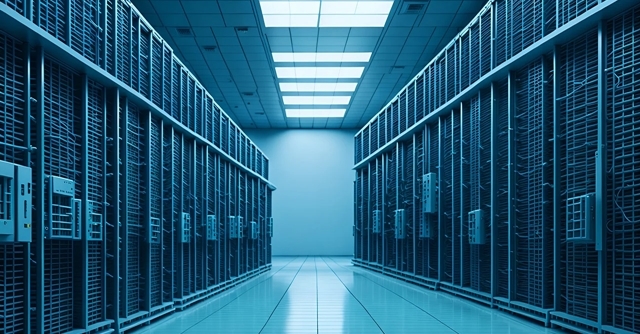
AI-led demand for Data Centres to add 500 MW of capacity by 2028


Data centre capacity in India has the potential to add another 500 megawatts (MW) over the next four years, according to a new report by financial services firm Avendus Capital published on Wednesday. This anticipated growth is primarily attributed to the rise in artificial intelligence (AI) workloads, which are forecasted to outpace traditional cloud computing demands.
The report, titled “Data Centres: Powering Digital India (Volume II),” highlights India's emergence as one of the fastest-growing data centre markets globally, with capacity expanding from 540 MW in 2019 to 1,011 MW in 2023.
Furthermore, the report projects an annual growth rate of approximately 26% over the next three years, attracting interest from a diverse range of investors, including growth-stage private equity firms, pension funds, and sovereign wealth funds. "The data centre market in India presents significant investment opportunities, fuelled by the increasing applications among AI clients," the report said.

Prateek Jhawar, Managing Director and Head of Infrastructure & Real Assets Investment Banking at Avendus Capital, said, “We believe that India’s data centre market will catalyse the next wave of investments in real estate and AI, creating substantial value for stakeholders.”
Recently, numerous companies, such as AdaniConnex, Reliance, Sify, Atlassian, Yotta, and AWS, have declared significant investments in data centres throughout India, particularly focusing on AI-driven initiatives. For instance, Yotta Data Services, led by the Hiranandani Group, has partnered with chip manufacturer Nvidia to establish an AI data centre in GIFT City, Gujarat, to cater to the growing demand for AI-centric data solutions.
Additionally, homegrown data centre provider CtrlS has also announced a $2 billion investment in October 2023 to develop 350 MW of AI and cloud-ready hyperscale data centres across Asia and the Middle East as part of its expansion strategy.

In addition, the report indicates that hyperscalers—large cloud service providers or companies operating on a grand scale, often constructing and managing extensive data centre infrastructures—are increasingly opting to build and operate their AI-led data centres in India to meet their specific requirements. This trend is driven by the country's favourable long-term growth outlook and regulatory frameworks regarding data sovereignty.
Sanjay Motwani, Vice President for the APAC region and Business Head of Legrand Data Center Solutions in India, informed TechCircle that by utilising advanced analytics and machine learning techniques, data centres can achieve profound operational insights. This capability facilitates informed decision-making, early detection of issues, and optimal resource utilisation. The transition towards predictive analytics is anticipated to improve data centre performance, minimise downtime, and generate cost efficiencies.
Experts also believe that AI-driven data centres will enable AI startups to lower their computing expenses by approximately 40-50%. This reduction is significant given that the current price of an Nvidia GPU ranges from $40,000 to $50,000 per unit. For basic operations, an AI company typically requires a minimum of 100 GPUs, making direct acquisition costs substantial for startups, according to analysts.

The research also highlighted that Generative AI (GenAI) is emerging as a transformative element, capturing the attention of IT firms that are strategically investing in its capabilities. The forthcoming years are expected to see investments that will fundamentally alter the data centre landscape, enhancing efficiency, agility, and performance.
Additionally, the government's ₹10,000-crore AI initiative is set to play a crucial role by establishing a network of high-performance data centres available for lease to industry stakeholders, thereby enabling them to train and develop AI models.
That said, the expansion of data centres is unstoppable, with a significant concentration of facilities located in seven major cities: Mumbai-Navi Mumbai, Chennai, Delhi-NCR, Bengaluru, Pune, Hyderabad, and Kolkata.

A report released in January by the market research firm Cushman & Wakefield indicated that these cities experienced a 35% increase in capacity year-on-year, achieving over 884 MW and covering more than 13 million square feet by the conclusion of 2023. Additionally, edge data centres are expected to see substantial demand growth, fuelled by the rising generation and consumption of data in Tier II and III cities.
